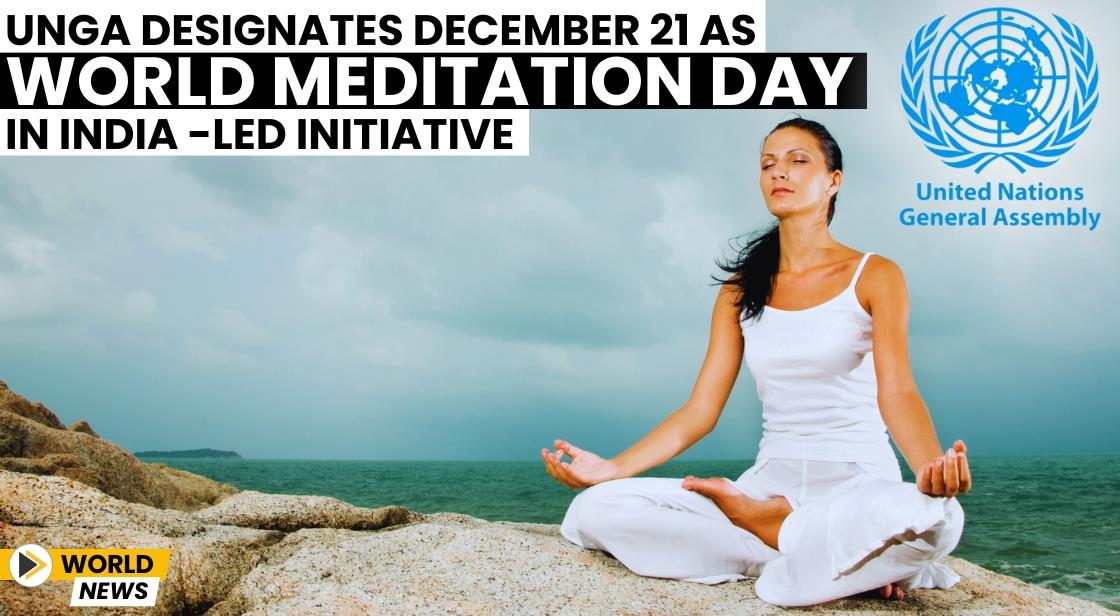UNGA Designates December 21 as World Meditation Day in India-Led Initiative

News Synopsis
India played a pivotal role in co-sponsoring a UN General Assembly (UNGA) draft resolution, alongside countries like Liechtenstein, Sri Lanka, Nepal, Mexico, and Andorra. This resolution, titled World Meditation Day, was unanimously adopted by the 193-member assembly to declare December 21 as a global day dedicated to meditation and inner well-being.
A Day for Comprehensive Well-Being
India's Permanent Representative to the UN, Ambassador Parvathaneni Harish, expressed pride in India's leadership in guiding the adoption of this resolution. He highlighted the resolution as a testament to India’s philosophy of Vasudhaiva Kutumbakam—the world is one family. Harish emphasized that the day aims to promote holistic well-being and inner transformation globally.
Significance of December 21
The date holds special significance as it marks the Winter Solstice, a time traditionally associated with introspection and renewal in Indian culture. This auspicious day also coincides with the start of Uttarayana, a period in the Indian calendar considered ideal for meditation and inner reflection. The selection of December 21 aligns perfectly with the global commemoration of the International Day of Yoga on June 21, the Summer Solstice, reflecting the harmony of cycles.
India’s Leadership in Global Wellness
India's instrumental role in spearheading the International Day of Yoga in 2014 set a precedent for this resolution. Over the past decade, the Yoga Day initiative has grown into a worldwide movement, encouraging millions to embrace yoga as part of their daily lives. The adoption of World Meditation Day builds on this legacy, demonstrating India's unwavering commitment to global wellness.
Meditation as a Tool for Modern Challenges
The resolution comes at a time when the world faces increasing conflicts and rising tensions. Meditation, rooted in ancient practices, offers a path to inner peace and transformation. It addresses multiple dimensions of well-being—mental, emotional, physical, and spiritual. By helping individuals cope with modern challenges like anxiety and stress, meditation fosters harmony between the mind and body, humans and nature.
Scientific Backing for Meditation
Modern science strongly supports the benefits of meditation. Studies have shown that regular meditation reduces stress levels, improves cognitive functions, and enhances overall physical health. The Indian mission to the UN emphasized that meditation’s proven benefits make it a powerful tool for fostering peace and well-being in today's fast-paced world.
Global Participation and Support
The resolution was introduced by Liechtenstein and co-sponsored by various nations, including Bangladesh, Bulgaria, Burundi, the Dominican Republic, Iceland, Luxembourg, Mauritius, Monaco, Mongolia, Morocco, Portugal, and Slovenia. This wide-ranging support reflects the universal appeal and importance of meditation in achieving global harmony.
A Testament to India’s Leadership
India's leadership in the adoption of this resolution underscores its role as a global advocate for human wellness. The declaration of World Meditation Day reaffirms India's dedication to fostering peace and well-being, making meditation a universal practice for inner growth and harmony.









